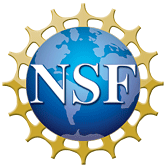Description
Welcome to the UTEP Neuroscience community! Our goal is to foster interaction among our members and serve as a resource for others. We are collaborative and interdisciplinary researchers hailing from multiple departments and programs across several UTEP colleges (Engineering, Health Sciences, Liberal Arts, and Science). We use a wide range of experimental models and methodologies to understand the genetic, biological, environmental, and social factors that affect neurological functions and that contribute to various dysfunctions in neural systems. In addition, our basic and translational research programs support undergraduate and graduate training, preparing students for careers in research, medical and biomedical fields, education and healthcare. Our projects are highly relevant to our U.S./Mexico border community, and address critical concerns of the Hispanics representing a major ethnic population in the El Paso/Ciudad Juarez region.
Aspirations
KEYWORDS
- Addiction
- Behavioral disinhibition
- CRF
- Dopamine
- drug abuse
- Feeding
- Glycine
- Learning
- mapping
- Membrane trafficking
- Memory
- Motivation
- neural circuits
- Neuromodulation
- Neuropeptides
- Octopamine
- plasticity
- Sexual dimorphism
COMMUNITY MEMBERS
Advocate
Advocate
Member
Member
Member
- 1 of 5
- ››
Related Efforts
The Center supports neuroscience research through multiple mechanisms including pilot grants, administrative support and seven core labs [Genomic Analysis (sequencing, qPCR, oligonucleotide synthesis, etc.), Cytometry/screening/imaging (cell sorting, confocal microscopy, etc.), Cytology (EM), Biomolecule (proteomics, lipidomics, metabolomics, etc.), Bioinformatics, Statistical Lab, and Community Engagement cores].
The Project is aimed at the development of a university-wide, cross-disciplinary drug abuse and research training program that is tailored toward students and faculty members interested in a career in drug abuse research, especially those from traditionally underrepresented backgrounds and communities.
This REU summer program will provide a cohort of participants with a high quality experience that combines education, novel research in state-of-the-art facilities, training in bioethics, one-on-one and group mentoring, and training in other relevant professional skills.
Contact: smartmind@utep.edu
The HHDRC is an ongoing collaboration partnering the best educational institutions; UTEP College of Health Sciences, School of Nursing and The University of Texas School of Public Health (UT-SPH), west Texas has to offer in terms of Hispanic health disparities research. This successful collaboration has led to a multidisciplinary approach in seeking new and better ways in understanding and helping to eliminate disparities among our rapidly growing Hispanic population.
Contact: barias@utep.edu
Related Centers
Dr. Li’s laboratory develops innovative optical imaging modalities for various applications. Currently we have a two-photon fluorescence microscope for live virus, cells and animal imaging. We are also developing nonlinear optical spectroscopic methods for organic solar cell and petroleum catalysis characterization.
The BACF specializes in the separation and characterization of biomolecules and is available to all UTEP users and external collaborators. Most instruments are accessible as shared-resources at no charge for the users. Service is also provided for sequencing and identification of proteins and peptides using LC/MS-MS on a recharge basis.
The CSI (Cytometry, Screening and Imaging) Core Facility is a comprehensive research cell-culturing and cytometry facility, located on UTEP main campus. The facility provides investigators, students and other researchers with “State-of-the-Art” technology to conduct cell-based experiments with modern equipment including fluorescence activated cell sorting (FACS; analyzer and sorter), CSI bioimager, automated pipette system and two confocal microscopes.
DIALOG SOURCES
I3 Move Communities provide a way to share expertise, resources, and community information to the general public. There are numerous tools available, both open source and proprietary, for engaging in dialog and sharing information and knowledge within a closed group.
This community engages in dialog as follows:
None specified to date.



